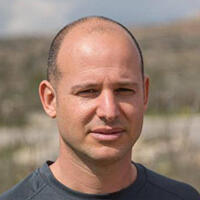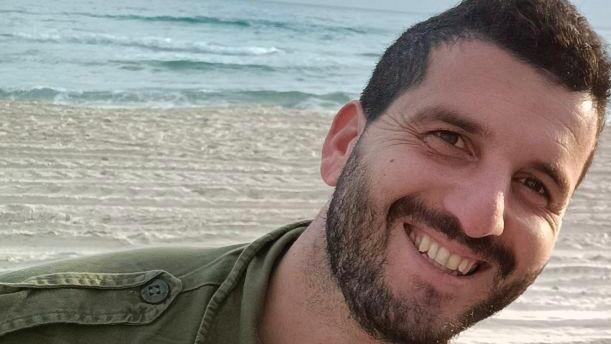Friends of Sergeant Major (res.) Adam Bismut (35), who tragically lost his life in the building collapse in the Gaza Strip, describe him as a wholehearted man who dedicated himself entirely to his country. "The heart refuses to believe," said his close friend Yaheli, "from the beginning of our service, we remained in constant contact, and he assured me that he would not die. We laughed about it, knowing that if and when the moment arrived, he was prepared to sacrifice himself for the country he deeply cherished."
Read more:
Yaheli, a long-time friend since their days in the military, spoke of the instant bond they shared. "In his youth, he was the joker of the group, always mischievous, bringing joy to everyone around him. As the years went by, particularly after his military service, he gradually started reshaping his future, liberating himself from the stereotypes imposed by his environment. He began utilizing his abilities to make a difference and assist those who came from difficult backgrounds," she said.
The invention of Adam Bismut
"He moved to Be'er Sheva and began volunteering with at-risk youth. It's hard to quantify his impact, but reading the posts that people are now sharing on social media gives a glimpse into how many lives he touched and how much he succeeded in influencing and inspiring others. Whether it was projects in Be'er Sheva, initiatives for Bedouin youth, or endeavors promoting self-empowerment and overcoming seemingly impossible challenges, he made a difference. He also developed his own products and initiatives."
Bismut who was on the faculty at Ben-Gurion University's Faculty of Management, was an entrepreneur at the university's entrepreneurship center.
"It may sound cliché, and they always say that God takes the best, but with Adam Bismut, especially when you consider the impact of a young man of 35 compared to the background he came from, a family that loved him dearly but didn't have the means and knowledge to propel him forward, a person who started his life with very limited resources but never stopped pushing himself forward, again and again, each time anew. I know that he was proud of himself. That he gave his maximum, in everything, in every sense," she said.
"I would be happy to see him alive for a few more years. To witness him achieving more success and reaching new heights. But I also know that when he entered Gaza, he accepted the possibility of death with a full heart. He understood that if it happened, he would be with the people he loved the most, the ones he trusted completely, and he would always be there for them. It's difficult for me to talk about him as if he's no longer here. He devoted himself entirely to his country.
"For the sake of the Southern region that meant so much to him. For the sake of his brothers, both biological and in the military. I have no doubt that he takes as much pride in his military service as he does in his other achievements. And to sacrifice his life for his country? That's an incredible accomplishment. All I can hope for is that we become deserving of such dedication. Adam was a beloved man. If you raise a glass, raise one in memory of Adam Bismut. He was one of those rare individuals who cannot be replaced.
Bismut founded a start-up called Sightbit. While he was hanging out at the beach in Tel Aviv with a friend, they heard about a drowning incident that had happened there a week earlier. he said he could not understand why at this day and age and with the technological advancements, there were still no tools to prevent drownings. That led to a start-up founded in 2018, to use artificial intelligence tools to prevent drowning.
This technology combines image recognition technology and machine learning. It uses cameras to visually monitor the beach and processes real-time data. It provides accurate and up-to-date images of potential dangers to assist rescue services. The system also tracks the locations of swimmers, detects possible drowning risks, monitors changes in sea conditions, and helps manage the movements of beachgoers, especially children. Bismut himself explained in 2019, "We are currently in the development phase, conducting a pilot in Ashkelon and having discussions with strategic customers in Israel and the United States. Our goal is to deploy the system in hazardous beaches in both countries soon and showcase its capabilities in real-world scenarios."





